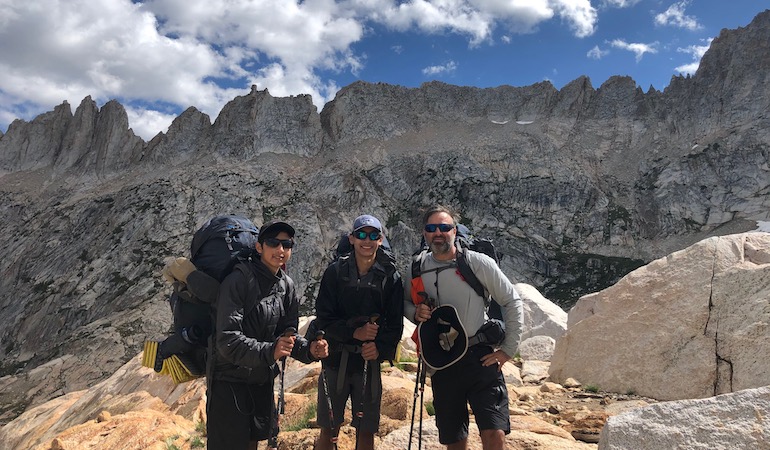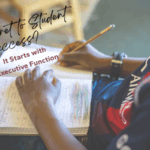A quality I cherish about summer is the way time expands for our family: we’re less rushed, less tightly scheduled, and less everything that makes the day-to-day feel overwhelming at times.
Especially when we’re focusing on building a fire while camping in the redwoods or paddling down a river, the summer pace naturally lends itself to more opportunities for contemplation and single-focused concentration.
Recently, it occurred to me that summer living doesn’t have to be sequestered to summer months and that we have more control over some of the pace of our lives than we acknowledge. It also occurred to me that Dr. Montessori understood this truth better and earlier than most.
Mono-Tasking & Multi-Tasking
It’s exciting to know that we can discern the types of educational environments and habits that promote the development of concentration and support “flow states.” Distinguished Professor of Psychology and Management at Claremont Graduate University, Mihaly Csikszentmihalyi, coined the term and idea of “flow,” which is described as “…what you experience when engaged in deep concentration in an activity you find inherently interesting. When your sense of self falls away.”
There is a growing body of research showing the benefits of concentration, as well as the deleterious effects of distraction and “multitasking.” A study reported in the Journal of Experimental Psychology and summarized in a New York Times article advocating for “monotasking” concluded that “…interruptions as brief as two to three seconds…were enough to double the number of errors participants made in an assigned task.”
(“Multitasking” as we think about it is not actually neurologically possible. Rather, our brains rapidly switch back and forth from one task to the other, which is highly inefficient as well as exhausting. I encourage you to check out online this “PBS Frontline” documentary on the subject of Digital Nation.)
Contrast the distractibility that colors so much of life today with our approach in authentic Montessori schools including Marin Montessori: the care we put into maintaining the integrity of the three-hour uninterrupted work period allows children to focus so deeply on the work they find meaningful.
In fact, there is now research showing that Montessori students engage in the advantageous mental and emotional state known as “flow” more often than students in conventional schools.
We also now know that an education that so thoroughly promotes concentration is associated with stronger executive functioning connected to inhibitory control, cognitive flexibility, and working memory, as well as stronger social intelligence. Maria Montessori’s words seem especially prescient: “…the birth of concentration in a child is as delicate a phenomenon as the bursting of a bud into bloom…” (The Absorbent Mind).
In today’s high-octane world, a worthy endeavor for each school is to create a learning environment for children and adolescents to harness and develop their power of focus and depth of thinking. This will, without a doubt, positively impact our children’s lives. In addition to the cognitive benefits so well demonstrated through the development of concentration, mindful focus simply makes life more pleasurable. As Kelly McGonigal, a Stanford professor and author of The Willpower Instinct, says, “Almost any experience is improved by paying full attention to it.”
Inspiring Concentration at Home
As we parent, we can also take steps to support our children’s concentration. The increased distractibility of course caused by today’s digital technologies is well known and well documented, so eliminating or limiting our children’s access to them is helpful. (See Real Fear. Real Hope: Social Media, Mental Health, and Our Children for more on this topic.)
Another important strategy is challenging the culture of immediate gratification that can permeate our lives today by offering purpose over diversion. Children lock in when they engage in work that matters. At home, parents can draw oxygen to and create space for a child’s nascent interest. We can help build their curiosity into something more substantial by honoring it. That might look like giving children a voice in weekend activities or inviting them to help plan vacations.
Perhaps the best thing we can do is to maintain deep connections with the natural world. The act of taking a hike or investigating a tide pool requires focus and patience. In exchange for some discomfort and suspension of immediate satisfaction, we receive the gratification of work and wonder.
Aren’t these the ingredients for the best summer day when time isn’t divided into tasks to complete but inclinations to pursue?
We can learn a lot about how to live our lives from those moments when we feel we’re escaping them.



As Head of School, Sam is responsible for ensuring that Marin Montessori flourishes and that the School’s mission is brought to life each and every day.






Becca K.
What a beautiful reminder on the value of presence, flow, and how to honor the curiosity of children. Thank you.